01.31.2013 | 12:21 pm
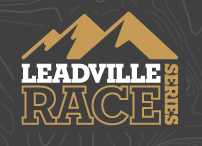 A Note from Fatty: As you may know — because I have kind of centered my life around it for the past sixteen years or so — I kinda like the Leadville Trail 100 MTB race. A lot of people do. And so a lot of people think about signing up, hoping they’ll get past the registration lottery so they can race it.
A Note from Fatty: As you may know — because I have kind of centered my life around it for the past sixteen years or so — I kinda like the Leadville Trail 100 MTB race. A lot of people do. And so a lot of people think about signing up, hoping they’ll get past the registration lottery so they can race it.
Well, this is just a friendly little reminder for those of you who have been thinking about signing up this year, but haven’t yet: today is the last day you can do so. Register by midnight MT today if you want a shot at getting in. Good luck!
Winter is such a special, wonderful time for cyclists like me. It’s snowing outside. In fact, there’s a lot of snow outside — check out this photo I just took of my backyard:
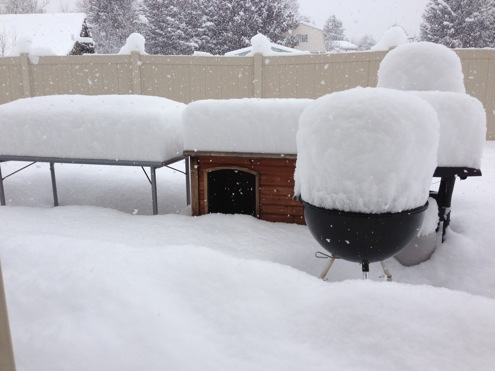
There’s a fire crackling in the fireplace. There’s lots of food in the fridge, and I’m wearing pajamas with an elastic waistband, making it much more comfortable to eat a second desert.
Furthermore, while it’s cozy inside, there’s ice on the road. The frost on the windows serves as a warning of what would happen to me, should I venture outside. Wisely, I heed the warning, and remain indoors, stocking-footed, often with a pair of woolly slippers on. Just in case.
In the garage, the Stan’s goop in my bikes’ tires pools, then congeals,. My biking shoes grow dusty. It has been so long since I have put a helmet on that I dont’t even remember what color it is. Its location is but a vague and distant memory.
Idly, I hope that by not wearing my helmet for so long it has ceased to stink quite so badly. Then I wonder if a chamois starts to get brittle if you don’t use it for months on end. This train of thought doesn’t go far, as my thoughts return to the task at hand: eating lots of bean dip.
I try to remember whether I have loaned my floor pump to a friend, or simply left it outside one fateful evening before the first big snowfall, now to remain undiscovered until the Spring thaw.
I note to myself, wistfully, that many of my riding friends (Dug, Rick Sunderlage [not his real name], Mark, Adam) have a Winter sport they go on: backcountry skiing. Naturally, they all would very much like me to join them skiing, by which I mean: none of them have ever asked me to join them skiing.
Which is just as well, because I would have to decline, making up some feeble excuse like, “No, I don’t know how to ski, and I am afraid I will kill myself as I try to learn.”
I would then add, “Besides, most of your videos make it look like you spend 95% of the time doing a forced march up a mountain, which doesn’t look nearly as fun as eating this here bean dip with a spoon.”
And then I would stuff a spoonful of bean dip into my mouth, just to underscore my point.
Temptation
I have a problem, though. A problem that has gotten a toehold in my mind, tempting me to step out of doors before the month of May.
Fatbikes.
Specifically, my friend Ricky (you can see that we’re friends because Facebook explicitly says so) got a fatbike for Christmas, and now he has begun to pester me, continually, with tales of his exploits.
And with photographs, like this one:
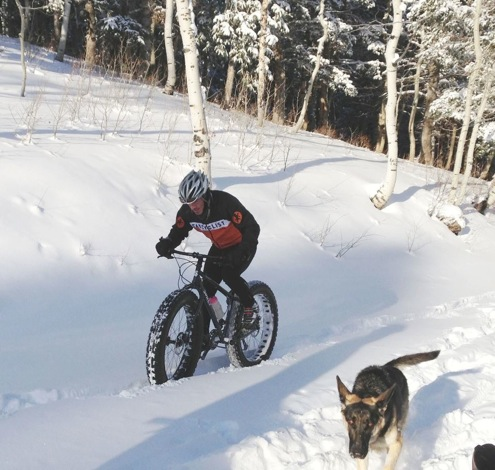
But you know, I could look at this and just dismiss it. I mean, sure, a friend of mine, out there on a bike, at the summit of the Alpine Loop (my favorite place in the world), on a beautiful day, having a blast.
I could dismiss it just like that.
The thing is, though, it’s not like Ricky’s the only out there riding a fatbike right now. It’s not like he’s some kind of wild-eyed, tongue-chewing outlier. These things have gotten popular around here this year. Ricky sent me this picture from one of his recent group rides, featuring an envy-inducing bunch of Salsas and Surlys :
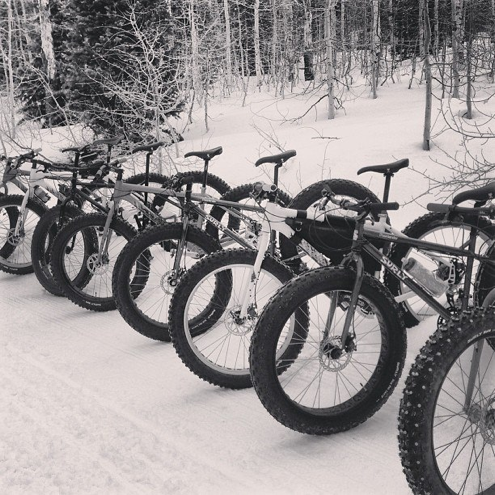
During this ride, I believe I was sitting at home, watching — among other things — a Bad Lip Reading of Beyonce on YouTube. In my heart of hearts, I find myself questioning whether I had as much fun as the guys on bikes were having.
And yet, I am concerned over whether a person with the nickname “Fatty” should own a fatbike, due to the confusion the similar names would no doubt inspire.
Hence, I find myself faced with a dilemma. Get a fatbike and join the throngs of riders who are seemingly enjoying winter?
Or open another bag of chips?
I think you’ll agree this is a conundrum for the ages.
PS: Since beginning this post, I have finished my bean dip and have moved on to a rotating dip triumvirate of salsa, sour cream, and guacamole. Just FYI.
Comments (55)
01.29.2013 | 12:53 pm
UPDATE: A number of people have left comments wondering about timing and format. This book will be published in paperback, Kindle, Nook, and iBook formats. Which will be available first just depends on which ones have the fastest / slowest processes for posting titles once they’re submitted.
As for timing, the book is being edited right now and will be finished in a couple weeks. It should then go through production fairly quickly, and will hopefully be available in early – mid March. I’ll update this as the book progresses along.
I don’t have a lot of time to write new posts right now because I’m trying to get all the pieces of Susan’s novel – The Forgotten Gift – in place and ready for publishing. Hopefully it’ll be finished soon and available within a couple months.
Right now, I’m working on the Foreword. I’d like to share with you my first draft.

The Forgotten Gift: Foreword
The story behind The Forgotten Gift: An Interrupted Novel is sad. But it’s also pretty amazing. I’d like to tell you a little of that story.
Susan — my wife, and the author of this book — had breast cancer. She had discovered it, had surgery for it, had chemotherapy for it, thought she was rid of it, and had moved on with her life.
But it came back.
It eventually went everywhere, but she felt it in her hip first, when a tumor first made it hard for her to walk, then impossible. No longer able to get around, Susan concentrated on making beautiful jewelry, and began reading. Voraciously.
I’d say Susan read about three books per week. She may have been the first person ever to actually wear a Kindle out. Then she had an idea: why not write a book of her own?
Our conversations stopped being about cancer, and started being about plots and audiences. Susan had dozens of ideas, and began writing plot outlines. After a couple of weeks of this, she came up with a story she loved, and began writing.
And this became her passion.
I’d come home from work every day to find Susan had written another five pages, the story just flowing out of her like she’d been a novelist her entire life. And we both knew she had a good story on her hands because her friends and neighbors she was sharing the story with would call on the days she didn’t write something new, demanding she get back to work.
It was fun reading this book, and not just because of the story. Susan wrote a lot of what she knew into this book. Her love of making jewelry. Her skill at old-school photo editing. Her interest in lucid dreaming. Her thing for guys with long hair.
She even wrote herself into the book as one of the characters. You won’t be able to miss her.
But sometimes, writing would be impossible. When Susan would be deep into a round of chemo treatment, she’d have no energy, no creativity. Her story would sit, waiting for her “chemo brain” to clear.
During these times, she’d outline what would happen next, once she had another break in her chemo treatments. Then, as she got back to writing, she told me, “I don’t know why I bother trying to write an outline. The story goes where it wants to. I’m not in charge of it.”
“Well, whoever is in charge of it is doing an amazing job,” I replied.
“But it won’t all fit in one book,” she said. “There’s going to have to be a sequel. This one is the first battle. The next book is where the war happens.”
“So this will end with a cliffhanger?” I asked.
“Not exactly, but it will be obvious that the story isn’t over.”
She told me how the book would end. Then after a few more days and twenty new pages, she told me another way it might end. The ending of the story shifted
Susan kept writing. I thought it was a great story, and she was writing it in record time.
But it wasn’t fast enough.
Her cancer kept spreading. Onto her spine. Into her liver. Into her lungs. And then, finally, into her brain.
Susan had only a chapter or two to go. She had written the big confrontation and now just had to set the stage for the second book. But she couldn’t write anymore.
“Tell me what to write; I’ll be your hands,” I said.
“I don’t remember what’s happening in the book,” she said.
So I tried reading parts back to her. It didn’t help. In fact, it made things worse. ”I don’t even know what you’re reading to me,” Susan said.
She couldn’t follow conversations. She didn’t recognize visitors and asked me to stop letting strangers come over. She asked whether we really had twin girls (we do), or whether they were just a dream.
She cried and asked me why I had left her alone on a snowy mountaintop, and begged me to bring her back down.
I knew she wouldn’t finish the book.
But sometimes, the cancer would give us a short break. Susan would come back to us. For half an hour or so she would be herself again — know where she was, know who we are. During one of these times, I made her a promise. I told her that I would make sure her book got published. I’d try to finish it myself, and then I’d publish it.
For a while, I thought I would finish the book myself, writing a conclusion based on one of the ways Susan had described to me. But those endings don’t make sense anymore. Those ending made sense looking in a straight line from where the story was at the time, not from where the story is now.
And besides, the conclusion was never mine to write. It told itself to Susan, and then Susan told it to us. I wouldn’t get it right. Nobody would.
And so The Forgotten Gift will remain an interrupted novel.
I want to call it an “interrupted novel” instead of “unfinished novel” for a couple reasons. First, because saying it’s just “unfinished” makes it sound like Susan was just too lazy to get the job done, and nothing could be further from the truth. She wrote quickly, passionately, and with self-discipline I have never exhibited in my own writing efforts.
The only reason this book has one too few chapters is because Susan was interrupted by cancer.
The second reason I call this an “interrupted” novel is because calling it “unfinished” isn’t really accurate. I personally find the conclusion of the book very satisfying. If you didn’t know that Susan had another chapter planned, the chances are you’d never suspect that another one was planned — one that would tie up a few loose ends, as well as prepare you for where the next book was headed.
If you thought this book would leave you hanging — ending in the middle of a sentence — and you were considering not reading it for that reason, stop worrying. This book concludes, and concludes well. It’s just that it leaves you wishing there could be more. But there won’t be.
Still, this book represents a promise kept, and I’m proud of that. I know Susan would be so excited to see this. More importantly, though, this book also is also a way Susan will be able to combat some of the hidden effects of cancer. Losing a mom has been hard on one of our children in particular — one who already was prone to depression — and treatment to help him fight back against this disease hasn’t been cheap.
The proceeds from this book will go toward the costs of this treatment. I know Susan would be happy to know that something she wrote will make such a big difference in her son’s life.
So, thanks for reading The Forgotten Gift. I think that — like me — you’ll find that instead of being angry that it’s an interrupted novel, you’ll be glad there’s as much as there is.
Which I think is a much better perspective.
PS: For those of you who would like to know, Susan did have a title for the last chapter in her book. It gives you a clue as to where the final scene would have taken place. It was Chapter 32: The Wedding.
Comments (68)
01.28.2013 | 8:21 am
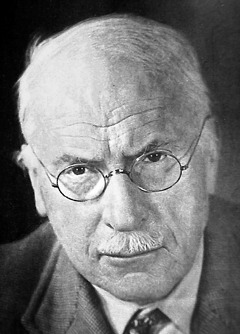
Going on a bike ride says some very important things about you as a person. It says that you are the kind of person who likes to ride a bike, for example. But it says more than that.
Much, much more.
It says that you are willing, in the name of doing something simple and fun, to purchase, assemble, and maintain an extraordinary array of equipment: shoes, socks, shorts, jersey, gloves, helmet, bottles, tire repair kit, tools, sunglasses, phone, GPS, ride route, food, and water.
And that’s only if you’re going on a short ride and don’t have something else you have to do afterward, like go back to work.
With the ridiculous amount of equipment required for riding, there is no shame in occasionally forgetting to bring something for a ride. Indeed, it’s amazing anyone ever remembers everything they need, and a testament to the OCD inclinations of cyclists of any stripe.
What you forget to bring for your ride, however, says some very interesting things about you. Subconscious things that only an expert in Jungo-Freudian psychology — i.e., me — can unravel and explain.
I shall do so now.
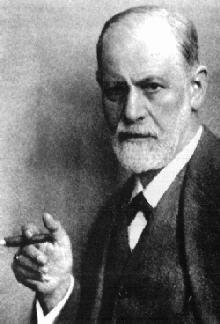
Shoes
This item comes first, because it is the thing that more cyclists forget more often than any other thing: their biking shoes. And no wonder, for neglecting to bring your cycling shoes says that, subconsciously, you are uncomfortable with the highly-connected sensation that clicking in to your pedals — and hence your bike — brings.
The commitment of joining your body to your bike mirrors the commitments you are confronting elsewhere in your life, and forgetting your shoes shows that you are looking for escape — or at least respite — from these responsibilities. Essentially, deep within you, a part of you would rather risk having a metaphorical pedal spin around and crack your metaphorical shin than face a completely connected relationship.
In short, forgetting your shoes means you’re a feckless jerk.
Forgetting the correct shoes — bringing your road shoes to a mountain bike ride or vice versa — on the other hand, simply means that you’re a befuddled, middle-aged man. Don’t worry about it.
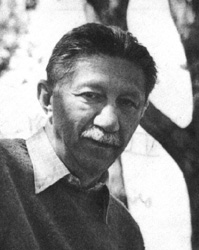
Helmet
Forgetting one’s helmet is the second most-common thing cyclists forget to pack. Trust me on this; I have scientific studies that back it up. I just choose to not cite them.
What forgetting your helmet means is quite exciting, actually. As the center for thought, your brain is what you think of as the place for thinking. (That last sentence is very profound. I promise. Go read it again, as many times as necessary, until you agree.) It is the place where your perception of reality is housed. Your head represents, in effect, your understanding of the world.
Your helmet, quite naturally, is an object that literally protects your head, and as such, figuratively protects your worldview. Hence, by forgetting your helmet, you are subconsciously expressing a willingness to experience new ideas and philosophies. You are saying that you are willing to open up and encounter — in a non-defensive manner — other people’s points of view.
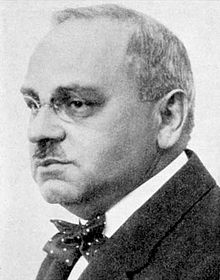
And this is a really awesome and liberating thing for you to do, because only by allowing new ideas in can you measure and understand your old ideas.
If, however, you forget your helmet consistently, it means that you are open to the idea of letting your skull get bashed in.
Gloves
In dreams, hands represent labor. Wearing gloves means that you want to isolate or hide yourself from labor. Hence, forgetting your gloves means that you are concerned that you live a coddled, uxorious existence, abstracted away from the meaningful and manly (or womanly or whateverly) tasks that keep you close to the earth.
It means you are, at some level, tired of having so few callouses on your hands. You want to get your hands dirty. You want to grow crops. Or hunt for wild game and eat it raw.
Unless you’re vegan, in which case it just means you’re going to finish this ride with some new blisters.
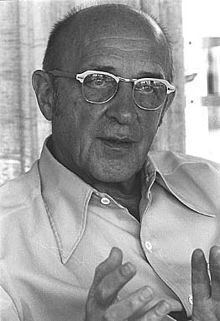 Phone
Phone
What does forgetting your phone say about you? Oh, that one’s too easy.
Food and Water
Food and water are the very foundations of life. Without them you cannot live, any more than you can live without breathing. At least, so I’m given to understand, though I’ve never tried going without any of the three for very long, and hence cannot independently verify these assertions. For now, let’s give other sources of information the benefit of the doubt on this.
Presuming, then, that food and water are essential for life and that you have forgotten these essentials, you may now believe that you are subconsciously expressing a wish for death.
In this you would be totally wrong, which is why I am the expert and you are reading this.
Neglecting the essentials means that you have reached a new plane of existence; you have transcended the banal needs of the flesh and are now a being of light and wind.
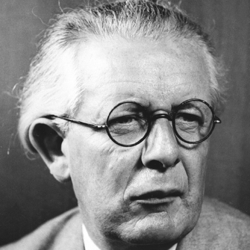
Unless you are going to be out riding for more than 2.5 hours, in which case it means you’re going to bonk and have to either beg food off your riding buddies or soft-pedal it home.
Tubes and Tools
You have forgotten your tools, patch kit, pump, and a spare tube. What does this say about you? It says you’re a weight weenie, basically, and didn’t forget anything at all — you just didn’t bring any of that stuff because you figured if something broke, you could mooch off one of those of us who actually come prepared.
In other words, you’re not fooling anybody with that “I forgot” nonsense, buster. We all know that you never bring any tools on any ride.
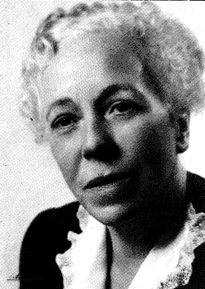
Shorts
Forgetting biking shorts means that deep inside, you’ve been wondering whether a chamois is really all that necessary. After all, your saddle is padded, right? Do you really need to have padded shorts, too?
In psychology, this translates to a deep-seated need you have to question authority. It means you want to reject the “because everyone else is doing it” mindset and find out for yourself what is — and isn’t — important in your life.
And the chamois is overrated, by the way. Try riding without one for a few weeks and you’ll wonder why you ever rode with one. (But I have not tried this myself.)
Socks
Forgetting socks doesn’t mean anything. You don’t really need them anyway.
Comments (34)
01.25.2013 | 12:27 pm
Stanza 1 – My Daughters
My daughters look
At their data
For their science project
Hopeful, yet concerned.
“There must be more twins out there,”
They say
And I assure them they are correct
“They just need time”
I say
While I cross my fingers
And hope
That many sets of twins
Will soon
By Saturday evening, really
Take the very simple and fun test
And submit their results
Stanza 2 – The Air
I look outside
And see firsthand
The worst air in America
Oh, to be superlative
Is it not always
A source of pride?
But it matters not
Because it is way too cold
For a sissy boy
Such as myself
Alas
To go riding anyway
But all is not lost
For I have rollers
And Netflix
And DVR’d episodes
Of many television shows
Which I did not watch
During times of better weather
So I am quite pleased with myself
Stanza 3 – A Crossroads
If my life is always hectic
Do I have others to blame?
No
My life is what
I have made it
And yet
Between insurance woes
And employment concerns
And more outside projects
Than I could ever do
Even if this were
What I did
Full time
Well it’s a lot
To deal with
Sometimes
Wondering whether
And what
And how
So it’s nice
To see one thing
At least
Coming together
And know that soon
I’ll be able to tell you more
Thank you.

Comments (19)
01.23.2013 | 1:54 pm
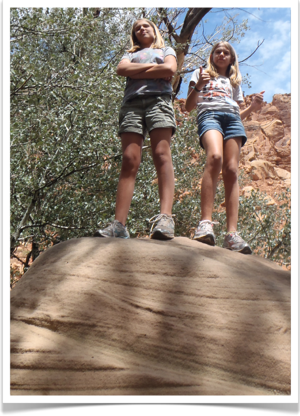
My 11-year-old twins have a great idea for their science project, but they need some Guinea pigs to help. If you’re a twin or if you have twins (at least 10 years old, please), I’m hoping you’ll take a little time to help out.
What They’re Doing
My girls (who are identical twins) are interested in finding out how similar twin’s abilities are, compared with fraternal twins (of the same gender). They also want to know whether twins stay about the same as they get older or whether they become more different as they have their own experiences.
I think it’s a terrific idea — certainly more ambitious than finding out what happens when you mix baking soda and vinegar (although I personally never ever ever get tired of that reaction).
How You Can Help
My twins need other pairs of twins to answer some questions and test themselves doing some tasks — some math, a maze, and some pushups. They need as many twins as possible to participate so they have lots of good data.
There are a couple of restrictions, though:
- Age: The twins must be at least 10 years old. And any twins under 18 who participate must have permission from their parent or legal guardian.
- No mixed-fraternal twins: The experiment will include both identical twins and fraternal twins where both are the same gender, but not boy-girl fraternal twins, because the experiment would be just as likely to test the differences between boys and girls as it would be the differences between twins.
What You Need To Do
If you’re a twin of the kind described above, please click here to download the experiment test packet my girls have prepared and take the test You’ll need to print out the packet (a PDF file) once for each twin. After you and your twin have taken the tests, go to the online survey I’ve helped my twins set up (this is honestly the only part of the experiment I’ve done significant work on) and enter your results. Make sure your twin does the same thing so my girls have both your results.
If you’re not a twin, you probably know some that are! In that case, why don’t you tell them to come over here and participate in this experiment. My girls need all the data they can get!
The tests will be fun and won’t take you very long. And once they’ve finished their project, they’ll post what they’ve learned here.
Thank you!
Comments (43)
« Previous Entries Next Page »
 A Note from Fatty: As you may know — because I have kind of centered my life around it for the past sixteen years or so — I kinda like the Leadville Trail 100 MTB race. A lot of people do. And so a lot of people think about signing up, hoping they’ll get past the registration lottery so they can race it.
A Note from Fatty: As you may know — because I have kind of centered my life around it for the past sixteen years or so — I kinda like the Leadville Trail 100 MTB race. A lot of people do. And so a lot of people think about signing up, hoping they’ll get past the registration lottery so they can race it. 








 Phone
Phone


